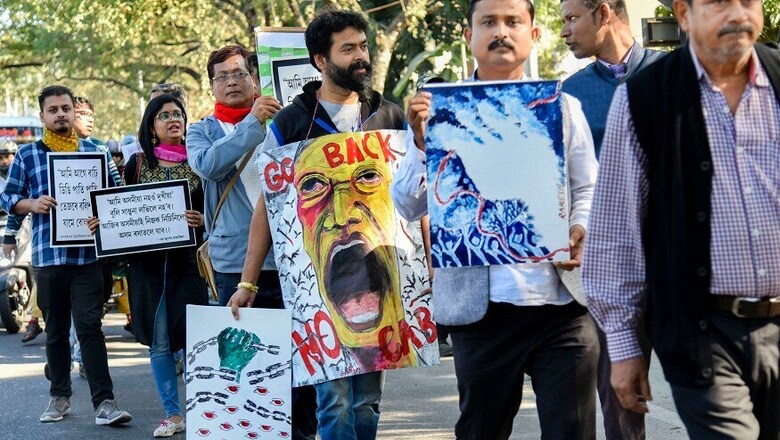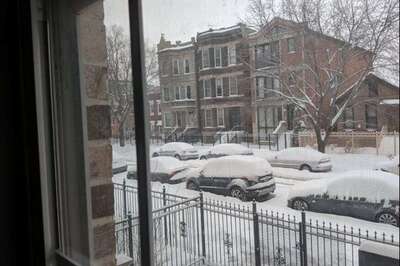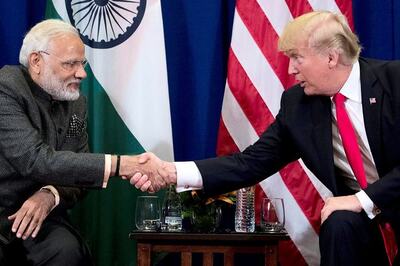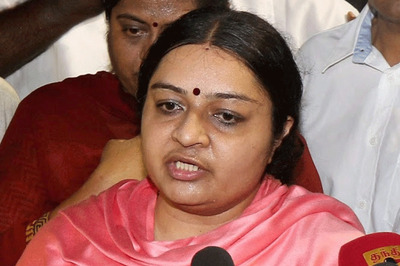
views
That the new version of the Citizenship (Amendment) Bill would incorporate new features was apparent from the developments in the last couple of weeks. All the states in the northeast under the Inner Line Permit regime and Sixth Schedule of the Constitution have been exempted from the controversial legislation.
There are 10 autonomous councils in the region under the Sixth Schedule — three each in Mizoram, Meghalaya and Assam and one in Tripura.
The number of subjects from the state list these councils administer vary between 32 and 40 and this is greater than the scope of other autonomous councils in the region. The states under the ILP regime are Nagaland (except Dimapur), Mizoram and Arunachal Pradesh.
This still leaves out Manipur, and large areas of Assam and Tripura. The government probably expects the unrest in Tripura’s tribal areas to fizzle out after the bill is tabled in Parliament.
Home Minister Amit Shah has also assured civil society groups from Manipur and Chief Minister N Biren Singh that a “mechanism similar to ILP” would be evolved to protect the state from the adverse impact of the bill.
However, protests are continuing in large parts of the northeast. The North East Students’ Organisation (NESO) has called a bandh on December 10 against the bill. Sources said the Centre is more focused on Assam where the protests are engaging more people and spreading to new areas.
The earlier assessment of a few BJP leaders that the movement would subside in Assam after a couple of weeks has proved false. Chief Minister Sarbananda Sonowal has been banned from several universities and effigies of senior BJP functionaries are being regularly burnt.
The possibility of the situation taking a turn for the worse in Assam cannot be ruled out since the passage of the bill in Parliament is almost certain. So, what are the BJP’s plans for Assam?
Peace Process with ULFA & Clause 6 Committee
Last month, former chief of Research and Analytical Wing (R&AW) and interlocutor with the United Liberation Front of Assam (ULFA), AB Mathur, had spent three days in Guwahati and had interacted with senior functionaries of the pro-talks ULFA faction and members of the committee constituted to submit recommendations for implementation of Clause 6 of Assam Accord.
This clause which stipulated constitutional, legislative and administrative safeguards for the Assamese (now interpreted to mean all indigenous communities) has remained unimplemented so far.
Till last month, the buzz among some circles was that a balance would be struck between the recommendations of the committee and ULFA’s charter of demands which was submitted in 2011. However, it is not known when the committee would finish compiling the report although some members are of the opinion that it would be completed soon.
What are the safeguards that are being considered? The different components of the provision have already been debated and discussed at different platforms in the past several years which include reservation of seats in elected bodies and jobs for members of the indigenous communities along with stringent laws of land ownership similar to the pattern existing in the hill states.
Associated with reservation is the demand for Scheduled Tribe status to the six indigenous communities (Ahom, Moran, Matak, Chutia, Koch-Rajbonshi and tea tribes). And, though the BJP leaders have been assuring at regular intervals that a bill would be tabled in Parliament for the purpose, nothing has moved beyond the rhetoric.
Also envisioned in the package are safeguards for the Assamese language and culture. The 2011 Census has raised concerns after a fall in Assamese speakers in Assam from 48.80 % in 2001 to 48.38 % was revealed.
The percentage of Bodo, Rabha and Santali speakers has also reduced, while that of Bengali and Hindi speakers has increased during the same period.
Current Status of Talks
It is possible that the BJP may not wait for too long for the Clause-6 Committee to submit the recommendations. The ULFA’s exhaustive charter of demands consists of 38 pages and covers a wide gamut of issues concerning the state, including safeguards to the indigenous communities.
It was framed by a nine-member committee of senior citizens comprising academics, retired bureaucrats and litterateurs. Some observers are of the view the ULFA’s demands and the committee’s recommendations would overlap at several places.
“The BJP might gain more political mileage if it inks the agreement with the rebel faction. On the other hand, accepting too many recommendations of the Clause-6 committee could also mean giving credit to AASU (All Assam Students’ Union) which the BJP may not want to do,” said a BJP functionary. “So a balance would have to be struck in a manner that the agitation in the state also subsides.”
Two additional factors could compel the BJP to arrive at a decision at the earliest on the troubled state. The forthcoming visit of Japanese Prime Minister Shinzo Abe to Guwahati on December 15 and his meeting with Prime Minister Narendra Modi.
The upcoming talks are considered extremely significant given New Delhi's future plans for the northeast. The city is being decked up with fresh paints on road dividers and pavement railings and a cleanliness drive has begun on the busy GS Road.
Two days later, the duo will be in Manipur to pay homage to soldiers killed during the Second World War at Maibam Lotpa Ching. Protests could portray a wrong impression on a region that is being showcased as an investment destination.
After weeks of vacillation, the BJP’s alliance partner Asom Gana Parishad (AGP)’s has finally come up with a fresh demand that constitutional safeguards to the indigenous communities in the state must precede the passage of the bill in Parliament.
The party’s volte-face was a result of angry reactions from senior functionaries and protestors against the three ministers who were reluctant to adopt an anti-CAB stand.
Last month, decks were almost cleared for the agreement to be inked with the ULFA when a glitch cropped up at the eleventh hour. There was no answer to a vital query asked by a highly placed official which compelled both the sides – the interlocutor and representatives from the pro-talks ULFA faction — to search for answers.
The idea was to have an agreement with a long-lasting impact on the social and economic development and security scenario of Assam.
Mathur has already discussed the possible alternatives with Modi and Amit Shah. In whatever form it is accepted, an amendment to the Constitution would be necessary with the insertion of a new clause in Article 371 and ULFA will also insist on ratification of the agreement by Parliament unlike the Assam Accord.
Like the peace process with National Socialist Council of Nagaland (Isak-Muivah) or NSCN (IM), negotiations with the pro-talks ULFA have also gone through ups and downs with two interlocutors already changed since it was initiated nine years ago.
Within a year of the talks, almost 80% of the issues in the charter of demands were settled with a few being rejected. It came very close to conclusion in 2016 but the home ministry developed cold feet following representations by several groups from Assam opposing ST status to the six communities.
(The author is a senior journalist in Guwahati. Views expressed are personal)




















Comments
0 comment